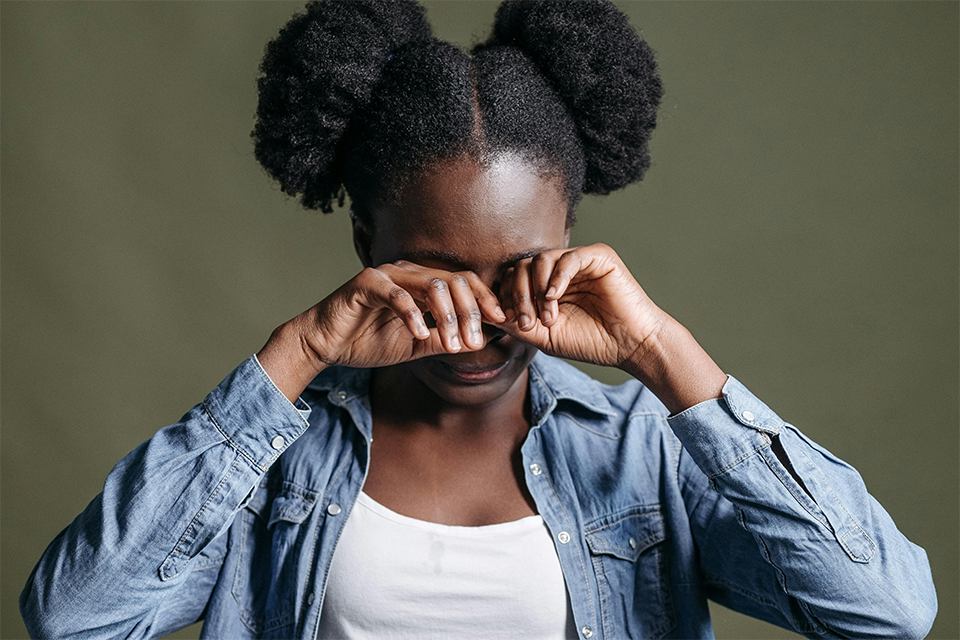Do your eyes feel dry, gritty, tired, or unusually watery? You’re not alone—1 in 5 people over the age of 45 experience symptoms of dry or watery eyes, and many more are affected occasionally. The good news? These problems are very treatable, and our expert team is here to help.
At Rawlings Opticians & Hearing Care, we offer appointments for uncomfortable eyes to diagnose the exact cause of your symptoms and recommend tailored treatment.


Despite the name, dry eye syndrome can cause both dryness and excessive watering. This condition occurs when your tear film—the thin layer of fluid that keeps your eyes lubricated—is unstable or poor in quality. In some cases, your eyes may overcompensate with producing overly watery tears, which don’t provide proper lubrication, resulting in irritation and discomfort. These symptoms are commonly associated with co-existing blepharitis—a condition affecting the edge of the eyelids and the oil glands (which secrete a thin layer of clear protective oils onto the surface of the eyes.)
You may benefit from an assessment if you answer “yes” to any of the following:
Dry and watery eyes can be caused by a range of factors, including:
Sometimes, no underlying health issue is present—but the impact on your comfort and quality of life can still be significant.
Our assessment includes:
Whether you suffer from dry eyes, watery eyes, red eyes, irritable eyes or a combination of these—expert help is available. Our team at Rawlings Opticians & Hearing Care can help you feel more comfortable, protect your eye health, and improve your quality of life.
Join the Rawlings Vision Plan for free assessments and exclusive discounts on eye drops, treatments, and care products
If your symptoms are new, some areas of England may offer an initial NHS appointment under local schemes, with the option of a follow-up private assessment if needed.
Rawlings is a long-established independent business serving the communities of twelve towns in Hampshire and Surrey, where we have built a strong reputation for the quality of our professional expertise and service.
Rawlings & Sons (Opticians) Limited is registered in England and Wales No 02862381. Rawlings & Sons (Opticians) Limited are a credit broker and not a lender. We offer credit products from Mitsubishi HC Capital UK PLC trading as Novuna. Rawlings & Sons (Opticians) Limited is authorised and regulated by the Financial Conduct Authority FRN 990854. Credit subject to age and status. Finance is only available for audiology products The interest free plans which are repayable within 12 months and in no more than 12 instalments are not regulated by the Financial Conduct Authority. Unregulated plans are not covered by the Financial Ombudsman Service.
© Rawlings Opticians 2026 Contact | Privacy Policy | Feedback | FAQ | Complaints | Disclosure Statement | Cookies Policy
Contact | Privacy Policy | Feedback | FAQ | Complaints | Disclosure Statement | Cookies Policy
© Rawlings Opticians 2025